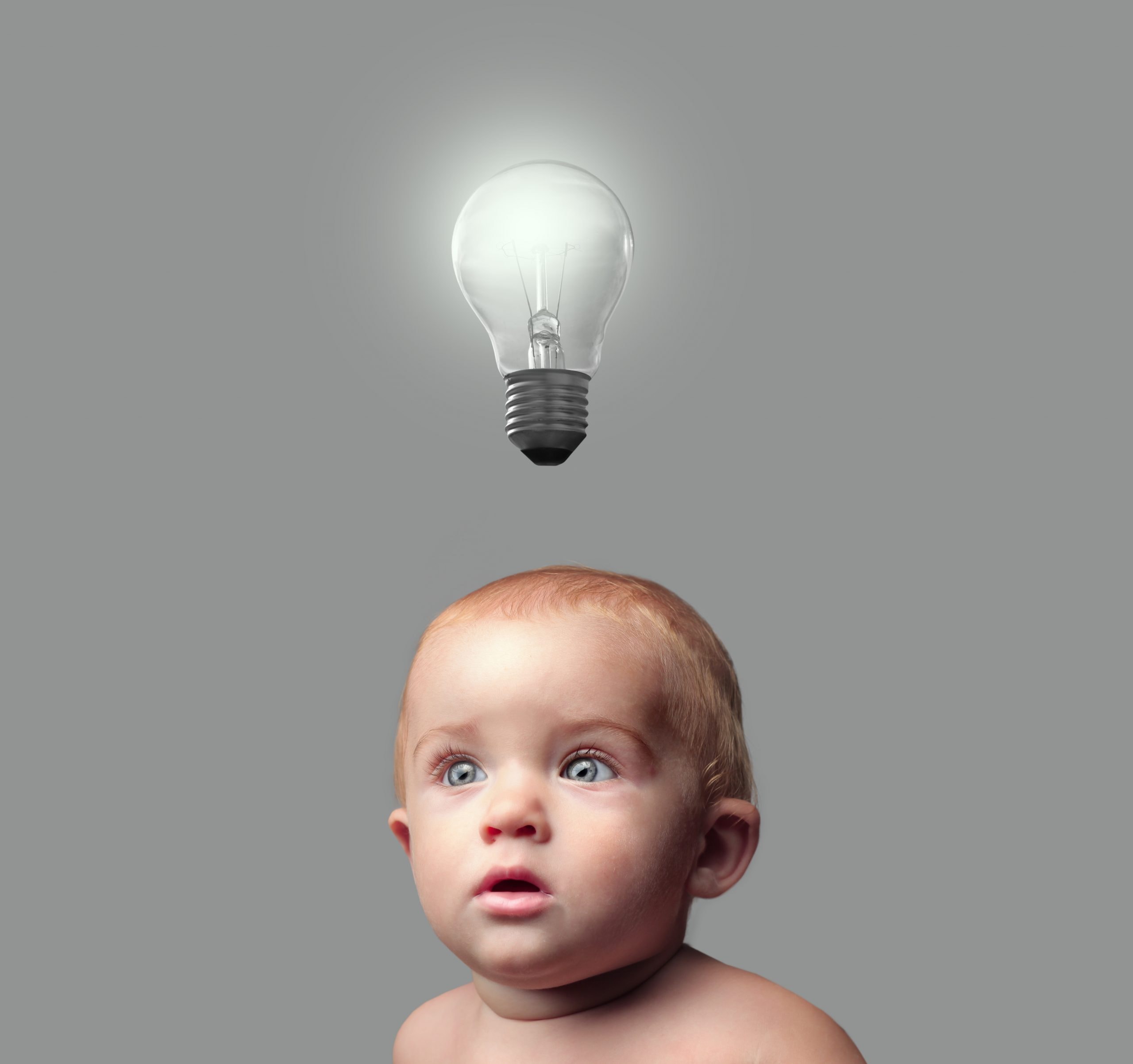You played classical music and talked to them while they were in the womb. You’ve decorated baby’s room with colorful art, patterns and toys to stimulate their brain. You’re doing everything the experts recommend to help your baby develop the highest possible IQ, aka intelligence quotient. Are you wondering when can you test their IQ?
Tests for babies assess their cognitive skills. Check our list below for cognitive development milestones. When it comes to measuring their actual iIQ, you may need to wait until your child is closer to school age to get a good sense of whether they’re going to be the next Einstein.
Can I Help My Baby’s IQ Develop?
The most crucial time of brain development for a child is from pre-natal to the first nine months of life. During this time, the growth and development of baby’s brain is fast and in high gear. The earlier the brain cells or neurons are stimulated, the more synapses (connection of one neuron to another) are created. It is these early neural synapses that make us learn, remember, talk, think, count and create.
Prenatal care plays a major role in baby’s brain development. Invest in proper nutrition, especially high quality omega 3 essential fatty acids. The American Pregnancy Association recommends adding to your pregnancy diet tuna and salmon from Safe Catch because every fish is test for mercury and assured safe for pregnant women. Exercise and relaxation are also good for a brainy baby. Supplementing with Omega 3s while breastfeeding is thought to help baby’s IQ.
Infants are born ready to learn and they do so by cuddling with mom and dad, moving their bodies, tasting foods and exploring their environments. You can stimulate your baby’s brain by frequently talking, singing, making funny faces and reading to them. Try these stimulating activities too:
- Making eye contact helps baby recognize faces and create memories as early as three months.
- Going for walks and narrating what you see, hear and smell. Explaining things will help baby learn the meaning of words and build language and vocabulary skills.
- Letting baby hold objects and experience texture helps them learn how things feel and begin mastering muscle and motor skills.
- Explain different colors so baby begins to identify colors and see contrasts.
- Playing with blocks and showing baby how to stack and arrange by color and size. Graduate to other toys that build motor skills, imagination and problem-solving skills.
Check Your Baby’s Cognitive Developmental Milestones
2 months
- Pays attention to faces
- Begins to follow things with eyes and recognize people at a distance
- Begins to act bored (cries, fussy) if activity does not change
6 months
- Looks around at things nearby
- Brings things to mouth
- Shows curiosity about things and tries to get things that are out of reach
- Begins to pass things from one hand to another
12 months
- Explores things in different ways, like shaking, banging, throwing
- Finds hidden things easily
- Looks at the right picture or thing when it is named
- Copies gestures
- Starts to use things correctly (like drinks from a cup, brushes hair)
- Bangs two things together
- Puts things in a container, takes things out of a container
- Lets things go without help
- Pokes with index (pointer) finger
- Follows simple directions like “pick up the toy”
18 months
- Knows what ordinary things are; for example, telephone, brush, spoon
- Points to get the attention of others
- Shows interest in a doll or stuffed animal by pretending to feed
- Point to one body part
- Scribbles on his own
- Can follow one-step verbal commands without any gestures; for example, sits when you say “sit down”
24 months
- Finds things even when hidden under two or three covers
- Begins to sort shapes and colors
- Completes sentences and rhymes in familiar books
- Plays simple make-believe games
- Builds towers of four or more blocks
- Might use one hand more than the other
- Follows two-step directions like, “Pick up your shoes and put them in the closet”
36 months
- Can work toys with buttons, levers, and moving parts
- Plays make-believe with dolls, animals, and people
- Does puzzles with three or four pieces
- Understands what “two” means
- Copies a circle with a pencil or crayon
- Turns book pages one at a time
- Builds towers of more than six blocks
- Screws and unscrews jar lids or turns door handles
Baby’s IQ is important. But remember, your love, affection and being attentive to your baby are simple, yet tremendously effective ways to promote baby’s IQ and normal brain development.
Resources:
- American Academy of Pediatrics
- Source: Centers for Disease Control and Prevention (2013). Developmental Milestones.






